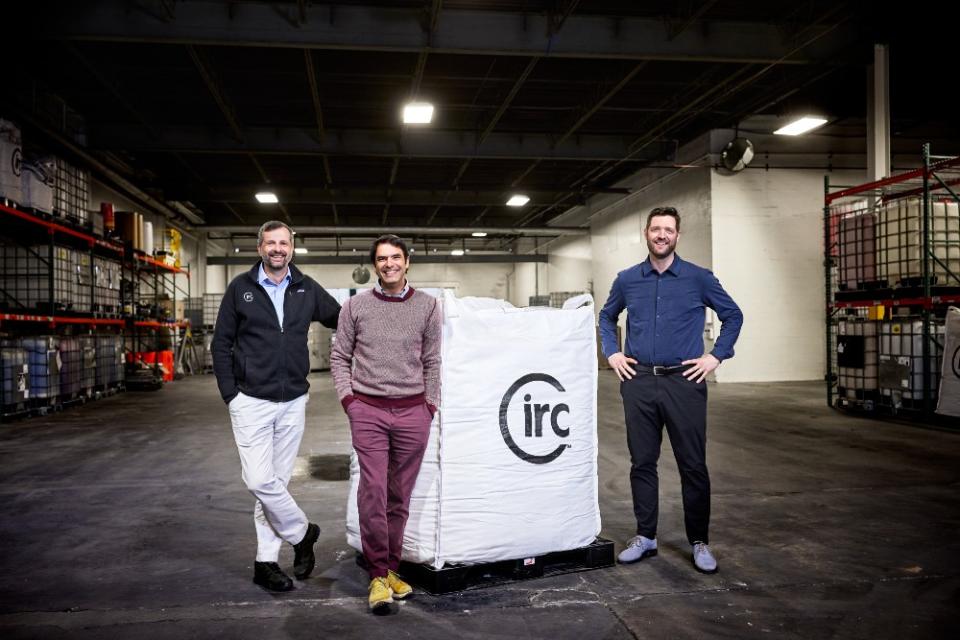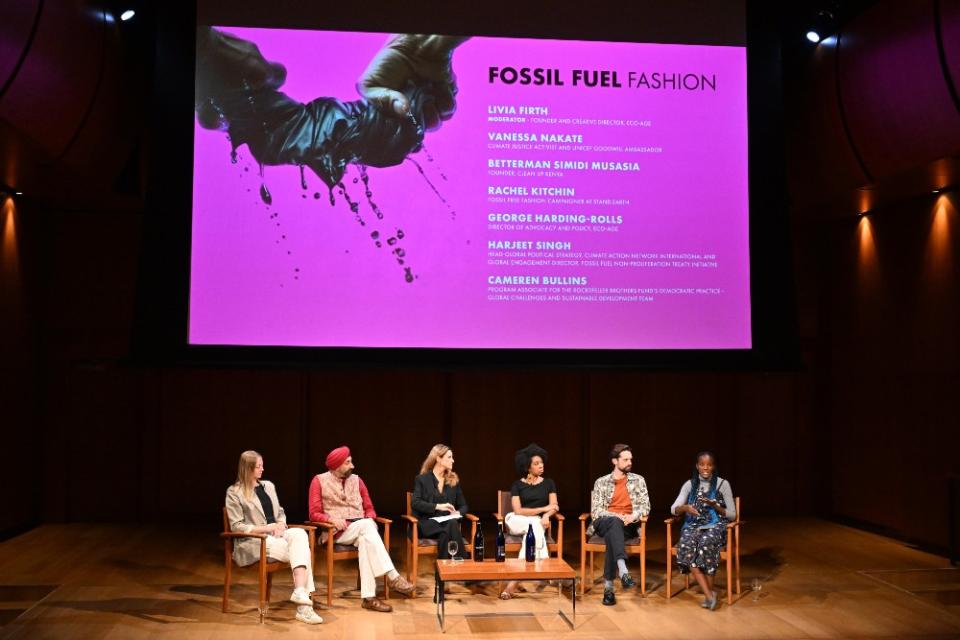At Climate Week, Fashion Needs a Circular ‘Mindshift’

Climate Week running Sept. 17-24 in New York City and led by the Climate Group and the U.N. General Assembly attracted royal attention this week.
Prince William announced the finalists for the 2023 Earthshot Prize, an initiative he launched three years ago to scale environmental solutions. Five 1-million-pound ($1.2 million) prizes will be awarded to innovators protecting and restoring nature, cleaning air, reviving oceans, eliminating waste and halting climate change. Five winners will be announced in Singapore on Nov. 7.
More from Sourcing Journal
Two textile-sector organizations were among the 15 finalists announced Tuesday. Virginia-based Circ Inc. was recognized for its textile-to-textile recycling solution using a sustainable chemical process to dismantle polycotton blended fabrics into their original building blocks and create new fibers.
Circ founder and CEO Peter Majeranowski told Sourcing Journal that the startup “put our heart and soul into our technology because we see innovation as a crucial component to addressing key drivers of the climate crisis.”
He added that Circ looks forward to accessing Earthshot’s business partners and investors, and said the “deeply validating” acknowledgment “boosts our ability to attract top talent.”
U.K.-based Colorifix, which creates sustainable dyestuffs using DNA sequencing to replicate natural pigments, is another finalist.

The lab recreates the genes that produce color, translating the DNA code into an engineered microorganism. That microorganism produces the pigment as it is found in nature, and dyes are fermented in batches using renewable sugar, yeast and plant byproduct feedstocks. The process eschews harmful chemistry, and reduces water waste.
The Global Fashion Agenda (GFA) also chose Climate Week to launch an online film series, Fashion Redressed, produced by BBC StoryWorks Commercial Productions.
The 11 branded films showcase innovators in the fashion and textile sector, and launched on a BBC.com microsite. They look at how fashion and overconsumption harm people and planet. They also explore innovations and business models promoting a successful fashion industry while addressing environmental failures.
The Ellen MacArthur Foundation, Vestiaire Collective, Spinnova, Tencel maker Lenzing, Faherty, Farfetch, Waste2Wear, Colorifix, the Forest Stewardship Council, eBay and Elk developed feature films with BBC StoryWorks on how their solutions support planetary health.
“This series expresses the dynamism and creativity of the fashion world, spotlighting the people weaving change into the fibers of fashion and those who are working to find the stylish side of a more sustainable sector,” GFA said in a statement.
“All solutions highlighted in the series are crucial to shaping a better future for the fashion industry,” added Diana Balanescu, global brand director for Spinnova, whose patented technology creates biodegradable textile fibers from wood or leather, textiles and agricultural waste streams, sans harmful chemicals.
The series debuted Tuesday ahead of GFA’s Global Fashion Summit in Boston on Sept. 27, where industry leaders and stakeholders will discuss environmental and social issues.
Also Tuesday, the Fossil Fuel Fashion campaign launched with a discussion between climate experts and fashion insiders about phasing petroleum-based fashion products.

Key stakeholders, UNICEF goodwill ambassador Vanessa Nakate, Eco-Age founder Livia Firth MBE and Fossil Fuel Non-Proliferation Treaty global engagement director Harjeet Singh joined climate and human rights leaders at Manhattan’s Morgan Library to discuss the industry’s over-reliance on non-renewable resources. Stand.earth corporate climate campaigner Rachel Kitchin, Eco-Age policy director George Harding-Rolls and Cameren Bullins, program associate at the Rockefeller Brothers Fund, which hosted the event, also joined the discussion.
More than three years of investigations by partners including pro-climate groups such as Stand.earth, Plastic Soup Foundation and the Geneva Centre for Business and Human Rights found links between corporate oil interests and the fashion sector.
“More than any other industry, fashion drives and thrives off the inequality between the Global North and the Global South,” UNICEF’s Nakate, a Ugandan climate justice activist, said. “While fashion companies grow rich on a fast fashion business model fed by fossil fuels, they dump their waste and pollution on countries in the Global South least equipped to deal with it.”
The campaign calls for legislative action to end apparel overproduction and reliance on fossil fuels.
“Our call for a fair phase out of fossil fuels comes as the world experiences one of the hottest years in human history—the fashion industry can no longer ignore its role in mitigating this crisis,” Harding-Rolls said..
The Fossil Fuel Fashion campaign calls for several planned activations, including events in Brussels, COP28 and the World Economic Forum in Davos.
Individual brands are also using Climate Week to draw attention to circularity.
Houdini, the Swedish sportswear brand, launched a new circularity platform where consumers can choose whichever business model meets their needs.
The new circular service reflects how fashion “needs a mindshift more than a technology shift,” CEO Eva Karlsson told Sourcing Journal.
The company tapped Boston Consulting Group to help develop Houdini Circle, what it claims is the first outdoor apparel subscription service. Members can order seasonal product groupings and swap out items in store for 450-700 Swedish krona ($40 to $65) per month. The starter subscription, launching in the U.S. next year, will feature a base package including a jacket, a mid-layer and bottoms. Users can add pieces for a fee.

The first-of-its-kind retail concept store opens in Stockholm on Sept. 28. Customers there can rent apparel, subscribe to a delivery service, purchase new clothing and accessories, buy or trade in pre-owned products, and access remade brand product.
“With the world gathering in New York City to discuss the urgent climate crisis and the fashion world descending on iconic cities, we must bring circularity front and center and set an example,” Karlsson said in a statement.
“With Houdini Circle, we bring this concept to consumers at one venue, giving them the autonomy on how they want to access, shape and curate their wardrobes,” she added. “This is a critical and reimagined business model that we hope to expand globally.”
Solve the daily Crossword

